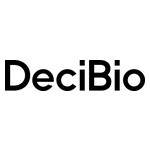LOS ANGELES–(BUSINESS WIRE)–#marketreport–DeciBio Consulting LLC’s latest market report, “DeciBio Spatial Biology Market Report 2022,” states that the global spatial biology market — driven by steady growth in academia and accelerated growth in biopharma and CROs, particularly within clinical trials — is predicted to reach $1.2B by 2027.
This report summarizes the present and future (2022-2027) spatial biology products and services market landscape, with an emphasis on spatial and multiplex chemistries and methods. Informed by primary and secondary research, DeciBio’s proprietary databases and tools, and the expertise of DeciBio’s consultants, this report provides quantitative and qualitative assessments of the key market segments (e.g., technology, customer type, application, plex level). In addition, the report details market drivers (e.g., increased adoption in certain customer segments), moderators (e.g., high cost of instruments and reagents), trends (e.g., interest in combining spatial transcriptomics with proteomics), and detailed profiles of top players.
Spatial Biology can be defined as the analysis of a target analyte(s) in tissue in a spatial context (i.e., the expression of the marker in context to its location within the tissue and/or other markers), and is driven primarily by multiplex analysis of biomarkers. Academia has been the largest customer segment of spatial biology analysis to date, however, its use in biopharma translational research and clinical trials is increasing as preliminary studies yield promising results and the technologies and analytical pipelines become more accessible and validated. Continued advancements in scalability, standardization, and clinical utility are expected to drive growth across all stages of R&D.
Report Methodology / Scope:
|
Report Details |
|
|
Research Methods |
|
|
2027 Market size |
$1.2 billion |
|
CAGR (2022 – 2027) |
30% |
|
Base Year |
2022 (current) |
|
Forecast Period |
2022-2027 |
|
Market / Forecast Currency |
USD |
|
Report Coverage |
Market size, segmentation, and forecast; key market players and trends; assays and technologies; market drivers and moderators; competitive analysis; quotes from clinical and research stakeholders |
|
Segments Covered |
|
Learn more about DeciBio’s Spatial Biology Market Report First Edition: Q4 2022
https://www.decibio.com/market-reports/spatial-biology-market
Spatial Biology Companies Mentioned:
- Abcam
- Acuity Spatial Genomics
- Advanced Cell Diagnostics (Bio-Techne)
- Akoya Biosciences
- AmberGen
- Bethyl Labs
- BioCare Medical
- bioSyntagma
- Canopy Biosciences
- Cell IDx (Leica Biosystems)
- CellCarta
- Cellecta
- Cerba Research
- Crown Bioscience
- Cytiva
- Enzo Life Sciences
- Flagship Biosciences
- 10x Genomics
- Indivumed
- Ionpath
- LabCorp
- Leica Biosystems
- Leica Microsystems
- Lunaphore
- Miltenyi Biotec
- Nanostring
- NeoGenomics
- Propath UK
- Q2 Solutions
- RareCyte
- Rebus Biosystems
- Resolve Biosciences
- Roche Diagnostics
- Spatial Genomics
- Standard BioTools
- Syncell
- Ultivue
- Vector Labs
- Veracyte
- Visikol
- Vizgen
- Other
Spatial Biology Market Analysis:
Market Drivers
Proactive data generation, the rise of immuno-oncology, and improvements (in capabilities, ease of access, and flexibility of platforms and chemistries) will spur the adoption and utilization of spatial biology technologies and will drive market growth. Important technical and data-informed insights will continue to emerge and drive market value in the spatial biology industry as analytical capabilities are bolstered by emerging AI-based image analysis algorithms and digital pathology. Sheer interest – and funding – for spatial technologies and companies will drive overall industry interest in bringing these novel tools to market as well.
Market Moderators
There are still barriers to market entry and development in the Spatial Biology field. Sufficient prospective primary outcomes in clinical data for spatial signatures is necessary for tangible success in clinical adoption. In addition, to ensure market success, clinics need to develop regulatory and payor policies and data platforms that support high-plex tissue analysis. Cost is also a deterrent to implementation due to a high cost per assay (up to $5K per slide), and bioinformatics costs (e.g., up to another $5K per slide or more for multiple analyses). Lastly, empirical data is imperative to assuage scalability concerns, as throughput is still limited (e.g., ~20 slides per day for a 3-6-plex mIF slide, versus as low as 1 slide per day for 20+ plex). As clinical infrastructure evolves and spatial signatures gain traction, there is a broad window of opportunity and market growth.
About DeciBio:
DeciBio Consulting (www.decibio.com) is the leading strategy consulting, market intelligence, and SaaS firm dedicated to accelerating the adoption and impact of technologies enabling precision medicine.
Headquartered in Los Angeles, California, DeciBio serves a global base of clients and customers, ranging from startups to Fortune 500 healthcare corporations. DeciBio offers advisory services for growth planning, market and opportunity assessment, product and portfolio strategy, voice-of-customer feedback, technology assessment, and commercial due diligence.
Contacts
Cameron Braverman
Braverman@decibio.com
310.451.4510






